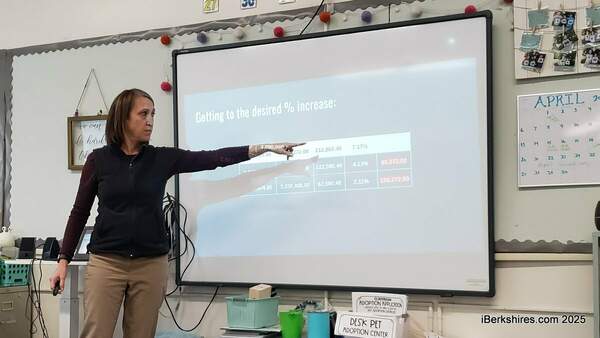CGI Studio: Film Credit Change Could Generate Jobs
 Walt Disney Studios
The state's film tax credit helped Synthespian Studios nab the CGI work on 'Surrogates.' The studio is hoping to extend the credit to attract investors to fund a feature animated film - and jobs for North Adams. |
That's the prediction of Synthespian Studios owner Jeff Kleiser, who's hoping to ramp up production on a full-length animated feature film right here.
"We have a script and completed the very early stages of preproduction," said Kleiser on Thursday afternoon. The movie would be based on the studio's Corkscrew Hill ride through Irish myths in Busch Gardens in Virginia. "We're interested in doing it all in Massachusetts."
But Kleiser said he could really use a longer-term tax credit to get investors lined up for his $60 million project.
The tax credits were established in 2005 and expanded in 2007 to lure production companies to film in the Bay State. They've been a rousing success, bringing in $3.6 million more in revenue than they cost and generating from $500 million to $900 million in ancillary revenue and thousands of jobs, according to the state Department of Revenue.
The number of major films being shot in Massachusetts more than doubled, from 10 films in seven years to 26 in the three years since the credits were enacted.
However, the credits — ranging from sales tax exemptions to payroll deductions, up to $7 million — only apply to films shot in the state within a 12-month period. Synthespian's "filming" could take 18 months, said Kleiser.
So he was at the Joint Committee on Revenue's listening-tour stop at Berkshire Community College on Wednesday to laud the program — and to ask for help.
"It's been very good for us," he told committee Chairmen Sen. Benjamin B. Downing, D-Pittsfield, and Rep. Jay R. Kaufman, D-Lexington. "Disney came to us to work on the 'Surrogates' project because we were in Massachusetts and they were shooting in Massachusetts. We got a $2.5 million contract based on that program."
Synthespian, previously known as Kleiser-Walczak Construction Co., specializes in groundbreaking computer-generated imagery. In addition to making Bruce Willis look like a 30-year-old android version of himself in "Surrogates," the company's worked on such films "Spider-Man" and "X-Men." At one point, nearly 100 people were working for the studio in North Berkshire.
Downing said on Wednesday that the 12-month time limit may have to do with the Legislature "trying to avoid the cost being beyond what the state could afford." Kleiser suggested Thursday that it may have more to do with the way live-action films are shot on location and then finished elsewhere.
"We really want to bring people here. That's perfect for us because we wouldn't have to go to another state," he said on Thursday. The company has a larger studio in Los Angeles but Kleiser and wife and partner Diana Walczak have called the area home for years. The film tax credit program has been a factor in keeping them here the last few years, said Kleiser.
Working on the Corkscrew Hill project could generate 250 to 300 jobs for 18 months to two years on the Massachusetts Museum of Contemporary Art campus. Kleiser said the company would try to fill its work force locally first before recruiting outside.
"We can certainly look into that especially when you say 250 to 300 jobs," said Downing. "I'm not kidding," said Kleiser. "I'm not kidding either," responded the senator.















